Retro Replay Review
Gameplay
Battleship for NES and Game Gear brilliantly reimagines the classic pen-and-paper pastime by adding layers of strategy and structure. Players still position their unique fleet on a 12×8 grid, but now they face a series of eight increasingly challenging levels instead of one flat skirmish. Each main level is broken into five sub-stages, and victories grant passwords to pick up where you left off, adding a welcome sense of progression and accomplishment.
(HEY YOU!! We hope you enjoy! We try not to run ads. So basically, this is a very expensive hobby running this site. Please consider joining us for updates, forums, and more. Network w/ us to make some cash or friends while retro gaming, and you can win some free retro games for posting. Okay, carry on 👍)
One of the most striking departures from the original rules is the restriction of a single shot per turn, regardless of whether it lands a hit. This limitation ratchets up the tension—every decision matters. As you advance through the stages, new ships like submarines and carriers join your armada, and special weapons become available. These attacks cover multiple grid points in striking patterns such as an X or a plus sign, rewarding careful timing and target selection.
Resource management and risk-versus-reward scenarios define the flow of each battle. Once a ship’s special weapon is used, it’s gone for good—and if that ship is sunk before unleashing its power, the opportunity evaporates. Later levels introduce reconnaissance tools: sonar to sniff out submarines and aerial recon to reveal all surface vessels. This constant infusion of new mechanics keeps the core gameplay loop fresh and engaging from start to finish.
Graphics
While operating within the technical constraints of the NES and Game Gear, Battleship delivers clean, readable visuals that prioritize clarity over flashy effects. Ships are represented by distinct pixel art icons, each scaled correctly to reflect its real-life length, making fleet identification intuitive even on a small handheld screen. The contrasting color schemes for player and enemy grids ensure quick recognition of hits, misses, and sunk vessels.
Animations are minimal but purposeful: exploding ships flash and fade to convey destruction without slowing down the pace, and the special weapons light up the grid in satisfying patterns. Backgrounds are kept simple, focusing attention on the tactical display. Menus and password screens adopt a uniform, easy-to-navigate layout, making long play sessions less fatiguing to the eyes.
The Game Gear version’s richer palette offers a slightly more colorful presentation, whereas the NES version sticks to a more muted set of hues. Neither edition attempts cinematic cutscenes or scrolling battlefields, but both maintain a steady frame rate and responsive controls. In a genre where readability is king, Battleship hits all the right notes.
Story
Battleship does not weave a traditional narrative—there are no characters to follow or plot twists to uncover. Instead, the “story” unfolds through the player’s journey across eight escalating environments, each representing a new theater of naval warfare. This minimalist approach keeps the focus squarely on strategy and skill rather than dialogue or cutscenes.
The progression from simple minesweeper-like engagements to scenarios featuring submarines, carriers, and advanced reconnaissance tools creates a sense of campaign-like momentum. Every new level introduces a fresh gameplay element, which, while not narrative in the conventional sense, fosters a feeling of advancement and discovery as you unlock each weapon or ship class.
This gamified progression stands in for a full-blown storyline, delivering the motivational hooks that many modern players look for. Passwords and level milestones act as checkpoints in your personal war effort, giving you clear goals and a roadmap to conquer all eight stages.
Overall Experience
Battleship for NES and Game Gear succeeds in turning a simple guessing game into a structured, evolving strategy challenge. Its single-shot rule, level-based progression, and one-time-use special weapons layer depth and tension onto a familiar foundation. The password system accommodates both console and handheld gamers, ensuring that busy players can tackle this naval campaign in bite-sized sessions.
Although the graphics remain functional rather than flashy, they serve the game’s needs perfectly: readability, fast feedback, and a coherent visual language for ships and weapons. Audio cues are equally understated but effective, with distinct sounds marking hits, misses, and ship sinkings. While purists might miss the open-ended nature of the paper version, newcomers will appreciate the steady learning curve and incremental introduction of mechanics.
Ultimately, Battleship offers a surprisingly robust strategy experience that recreates the thrill of naval warfare on vintage hardware. Its blend of puzzle-like tension, resource management, and tactical planning makes it an engaging purchase for fans of classic strategy and portable gaming alike. If you’re looking for a title that’s easy to pick up but hard to master, this adaptation showcases how much depth can arise from a single-shot mechanic paired with creative level design.
 Retro Replay Retro Replay gaming reviews, news, emulation, geek stuff and more!
Retro Replay Retro Replay gaming reviews, news, emulation, geek stuff and more!

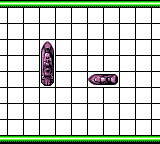
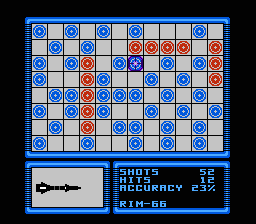
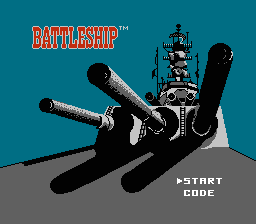

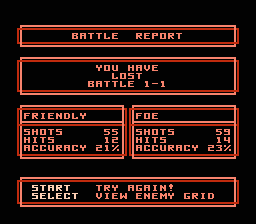

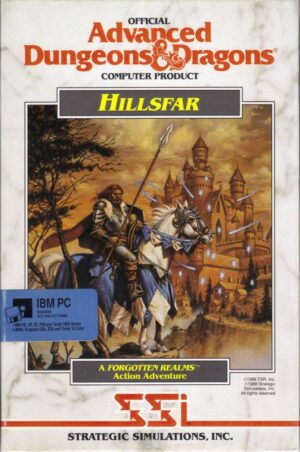
Reviews
There are no reviews yet.